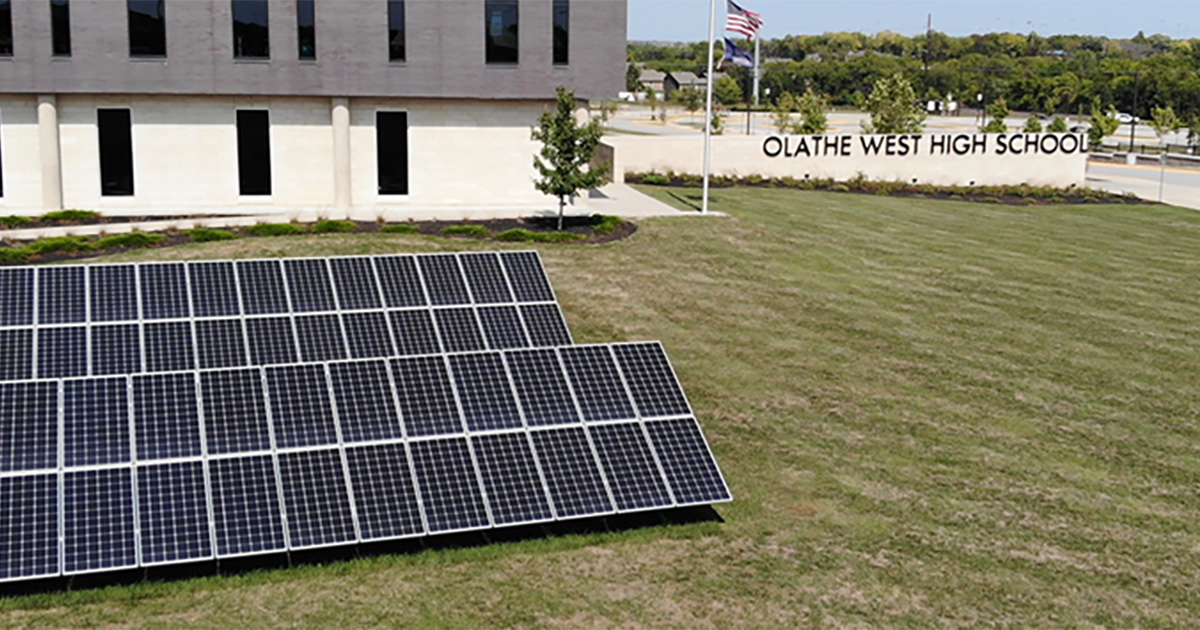Can High Schools Prepare Students for Green Jobs?
How a Career Academy Is Training Students for the Sustainable Economy

As the United States grapples with how to address the impacts of climate change, some cities are implementing initiatives to address climate change at a local level. Adopted formally by the city in 2022, the Kansas City, Missouri “Climate Protection and Resilience Plan” calls for a 100 percent reduction of greenhouse gas emissions from the city’s operations by 2030.The plan also includes a focus on the needs of marginalized communities who disproportionately experience the effects of climate change. Simultaneously, in the Kansas City area, some high schools are offering career and technical education (CTE) pathways for students to develop skills needed for the “climate-ready” workforce. MDRC is learning from schools and programs across the country that are building innovative programs to prepare high school students for jobs that address these shifting labor market needs.
The Green Tech Academy—a career academy within Olathe West High School in Olathe, Kansas (a suburb of Kansas City)—is pioneering the use of CTE pathways for green jobs. Building on the career academy model, which an MDRC evaluation found to have long-term, sustained effects on earnings for students, the Green Tech Academy is one of a new generation of high schools in the United States where students learn about renewable energy and sustainable agriculture through an in-depth curriculum, project-based learning, and industry-relevant internships and community experiences. The four-year program aims to teach students about the effects of energy use in daily life and to offer learning experiences focused on combating climate change.
The Green Tech Academy serves 106 students and is one of 10 CTE academies within Olathe Public Schools. Of the 20 graduating seniors in 2023, Green Tech Academy reports that 15 plan to pursue careers or further education in green industries.
Andrew Miller, one of the educators at Green Tech, says that the academy and its students are successful because the school has strong support from school administration, faculty members, and community partners, and because faculty members and administrators at Green Tech Academy incorporate students’ suggestions into the curriculum and programs. Matthew Millholm, another educator at the Academy, discussed how he and other faculty members use students’ interests in current events to shape in-class discussions and assigned readings. In this way, students contribute to curriculum decisions while pursuing their interests.
Students begin the academy with an exploration of two possible pathways—taking “Introduction to Energy” and “Agriculture Explorations” in their first year—before specializing in one pathway in their upper years. Students who pursue the agriculture pathway take courses in sustainable resource management and plant and animal science. In the renewable energy pathway, students take a course in computer-aided design, as well as another in fundamentals of the energy industry. Seniors in both pathways complete a culminating senior capstone project and an advanced placement course in environmental science. Within each specialization, students can focus on their individual interests and career aspirations.
In addition to course requirements, students must complete 200 “eHours,” which are hours spent outside of the classroom focused on energy and sustainable agriculture. Some examples of eHours include community service projects, attending public hearings related to green tech, attending energy or environmental events, and interviewing professionals in their fields of interest.
A central component of Green Tech Academy is its robust partnerships with 27 local industries. Students can participate in a myriad of opportunities such as field experiences at wind farms, solar arrays, and hydroelectric power plants. Through internships, they learn to conduct audits of buildings’ energy use and participate in Future Farmers of America. Students also obtain industry-recognized certifications such as OSHA 10, a 10-hour workplace safety course. Green Tech Academy also maintains strong partnerships with local postsecondary institutions such as Johnson County Community College, which allows students to receive college credits for completing already required courses. Beyond local partnerships, Green Tech Academy’s sustainable agriculture pathway has developed relationships with a network of other high schools in western Kansas that have agriculture programs, to collaborate and share best practices.
Green Tech Academy is part of a regional initiative, a collaboration with 31 school districts in the Kansas City metropolitan area and the Kauffman Foundation to cultivate innovative thinking and skill development in- and outside of the classroom by ensuring that all high school students have at least one meaningful, immersive, real-world learning experience before they graduate from high school.
As more high schools consider how to expand CTE pathway programs for fields related to the green economy, schools such as Green Tech that are implementing evidence-based models offer insights into how to broaden access to these kinds of pathways to more schools and students, helping students enter growing, well-paid fields that meet the needs of the labor market and the planet.






